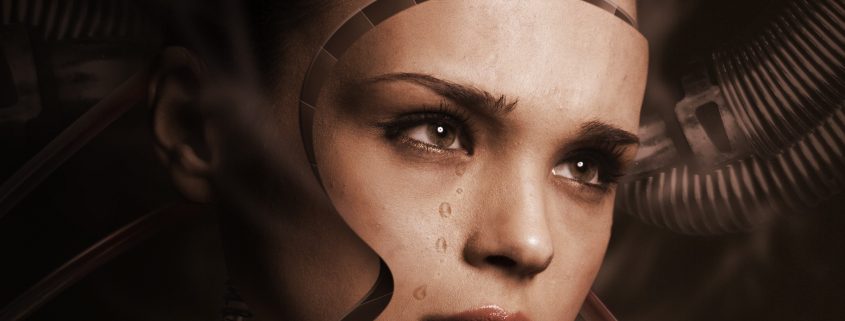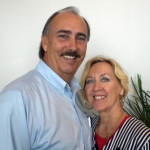By Dr. Thomas Horn
Recently, Zygon: Journal of Religion and Science featured a piece written by Professor S. Jonathon O’Donnell in the Department of Religion and Philosophies at the University of London titled, “Secularizing Demons: Fundamentalist Navigations in Religion and Secularity.”
O’Donnell’s aim? According to the article’s abstract, it was to explore at a deeper level than his peers the “anti-transhumanist apocalypticisms” of our day, the central voice behind which was identified as yours truly—“evangelical conspiracist Thomas Horn [and his] milieu [community gathering place]”
In other words, the University of London professor has determined that I and those who work with me at SkyWatch TV and Defender Publishing are the “leaders of the transhuman resistance” that members of that community had better pay attention to. The peer-reviewed Zygon agreed at least to the point they found reason to promulgate O’Donnell’s thesis.
A title such as this placed upon me and the associates within “my milieu” is, I assure you, not as offensive as it may seem. Quite the contrary, I am encouraged that my line of work in the media has captured the attention of renowned spokespersons of the scientific world—such as those deemed worthy of being featured in Zygon. The very fact that personalities of such high regard and academic acumen are addressing what I’ve concluded throughout my career proves that my work is worth addressing. If I was completely off the mark out in La-la Land, I may still gain attention for being an agitator, but to persons such as O’Donnell, I would simply be considered inconsequential and not worth the precious time it takes for them to write such a detailed response to my convictions. Likewise I am deeply flattered to see how mostly professionally and fairly my stance on the subject was handled, as I nearly expected this to be yet another “hit piece” upon myself and my associates. Most naysayers who have come against our work have formulated little more than a straw man’s argument. It’s clear by their retaliation that they haven’t truly read my work to begin with. They assume—errantly so—that we are just religious men and women who cry “sin” against anything laboratory-created as it doesn’t innately have the hand of God upon it. Such may not have been the case for O’Donnell. Much to my surprise, O’Donnell did not appear to be driven by the sole desire to paint me as a half-witted lunatic like some others have done throughout recent history. For that, I openly offer my gratitude.
There was, however, a few intrinsic flaws in his conclusions about us and our “demonologies” of transhumanism and secularism that we will discuss in this and the next couple magazines.
Why?
Because in 2018 we will: 1) host a conference in Branson, Missouri (this September, more info coming soon) where scientists, artificial intelligence developers, technologists and theologians will gather to inform the public on the ramifications of the soon coming technological singularity; 2) release a book on the subject by members of “The Milieu,” and 3) broadcast a month long Special Investigative SkyWatch TV Report on the hottest issues involving transhumanism and Christianity. This magazine will guide and apprise our readers on the most germane subject matter as things develop in the weeks and months ahead.
But Back to professor O’Donnell and his thesis for the time being.
There is always an inherent fallacy when a personality trained in the scientifically oriented school of “show me proof/evidence” analyzes a stance based on religious conviction, particularly as it relates to eschatological prophecy and ruminations about events that have not yet occurred. It will probably always be this way on this side of eternity, since what we “evangelical conspiracists” see written on the wall regarding the scriptural warnings of God aren’t impartially considered amidst the “proofs” and “evidences” of science. It’s no secret that science recurrently discounts religion, and by extension any conclusion that a religious spokesperson may come to. Though I wouldn’t immediately accuse O’Donnell of it personally, well-learned academics heavily entrenched in the scientific community or its publications quite frequently respond to religious concerns with “intellectual snobbery.” And we’re not guiltless on the religious end either, as many a minister will immediately regard people who place their faith in science with an air of “moral snobbery.” It should not have to be this way, but it is a reality perpetuated just as much or more by the Church than by the secular world as I see it. Religion—especially conventional Christianity—recurrently discounts science, and though I understand why, I think this is an unnecessary tragedy. Many preachers and teachers of the Church today distance themselves from addressing scientific development and discovery (and the more “fringe” the topic, such as transhumanism, the greater the distancing) because the Bible is always the final authority, so “science is irrelevant when it contradicts Scripture,” or so the thought process relates. On the other hand, the world at large (including Christians) considers most aspects of transhumanism (and science in general) to be enormously important to our current, and future, generations, so it matters a great deal. How sad, then, that any minister willing to tackle the “fringe” topics is seen as a conspiracy-theorist whacko (often by the Church as well) instead of the man with the salve that could potentially help heal some of the festering tension between secular and religious people groups.
In many cases, such as a pastor of a local congregation whose duty is primarily to sharpen the Body of Christ and spread the Good News of our Savior, speaking of transhumanism and its potential travesties might be a distraction from what he or she is personally called and gifted to do. Though, there remains to be a massive deficit of voices on the God-fearing end of the spectrum that choose to stand in opposition to certain aspects of transhumanism and its prospective travesties, and the result of this is a tragedy in itself. When so few spokespeople of the Gospel are willing to address such important issues in the secular sphere: 1) Believers have nobody on their side to tell them why or how these scientific developments are immoral and possibly devastating, and they are therefore misled to support what they don’t know the Bible expressly forbids; 2) nonbelieving agitators against religion have that much more reason to blast the world with the claim that the Church is outdated and irrelevant; and 3) those who may or may not feel convicted to believe in or follow God already (or those who have yet to even consider what they believe) have a scarce few intelligent, educated theological responders to listen to and guide them (most of whom are already squelched by a “conspiracist” label) and therefore have no reason to see Christianity as anything more than an archaic system of beliefs that can’t relate to the modern world they live in.
The more a minister of the Word compares Scripture to science and the convictions and agendas therein, the more Scripture proves itself to be true from the beginning, so really, a minister’s attention toward what is happening in laboratories across the globe today should not be as intimidating as it has become anyway—yet it appears that hardly anyone in the mainstream Church takes this position. Ministers are missing a great opportunity here to reach those who are confused about what Scripture actually says on the subject…
I don’t wish to insinuate that it is every Gospel minister’s responsibility to drop everything and start preaching about the inner-workings of every sinister scientific organization and the impending dooms that may be birthed from them (and as I said prior, this might prove to be a distraction away from many ministers’ personal callings), but it is my goal in this thread of thought to point out that there have been so very few ministers of the Gospel that have stood up to address these issues for all three people groups just mentioned—which covers all three known categories of people in existence (believers, nonbelievers, and those who haven’t decided yet).
I can’t say that I blame anyone. To take the bull by the horns and speak out regarding the concerns of modern science is a risky move, and it places one in a minority position. My opinions and concerns about the incoming “replacement humans” are often disregarded or staunchly opposed by the scientific community (and lay readers who follow it), despite the fact that a great deal of my arguments have been solidly based on what concern-flags the scientific community has raised in the first place. (As for me or my associates being labeled “conspiratists,” a conspiracy is not a conspiracy when there’s proof, and much of my research traces back to the horse’s mouth, so that label largely cancels itself out if we’re all willing to be honest here…) A minister can quote from the same ten science journals in a row and identify the same impending catastrophes as a secular spokesperson on any given day, but between these two voices, by default of his religious distinction, the minister’s warnings may be discarded by the mainstream who believe his conclusions to be born out of a sacred duty that many believers don’t yet fully comprehend, and toward a God that nonbelievers need not heed. He or she has become a part of the minority, much like many of the prophets in the Old Testament when the majority of Israelites were so consumed with pagan revelry that the warnings of God fell to the wayside until it was too late—and seasons of great tribulation followed every time. (In the case of transhumanistic sciences, however, we are not talking about “seasons” of tribulation, but potentially a permanent and unchangeable reality that no petri dish or super-computer on the planet can reverse.)
I can certainly relate to this—not because I equate myself with an Old Testament prophet, but because I have attempted to raise awareness of irreversible dangers transhumanism poses to the human race that God designed and have watched as, over the years, many have ignored the warnings I believe God persuaded me to put out there. How exciting and flattering, then, that my warnings have been heeded by a man in O’Donnell’s position who finds it necessary to concentrate upon and attend to the research I’ve compiled regarding the relationship between today’s “Promethean faith” (transhumanistic ideals of “playing God” by redesigning His creation; more clarification on this later) and the clear-cut commands of God against some of these practices as addressed in the Word—even as early as Genesis.
Thus, starting in the next edition of SkyWatch Magazine I’ll begin a series of articles to address everything from the nearness of technological singularity to the ethics Christians and conservative philosophers will need to deal with… and sooner than most imagine.
Dr Thomas Horn, former pastor, founder of Skywatch TV and Defender Publishing, best selling author and movie maker. Founder of Whispering Ponies Ranch/Camp for abused children. Dr Horn is re-known as a researcher worldwide. His book Petrus Romanus shook the world with its prediction of the last Pope’s retirement to the very month.





Leave a Reply
Want to join the discussion?Feel free to contribute!